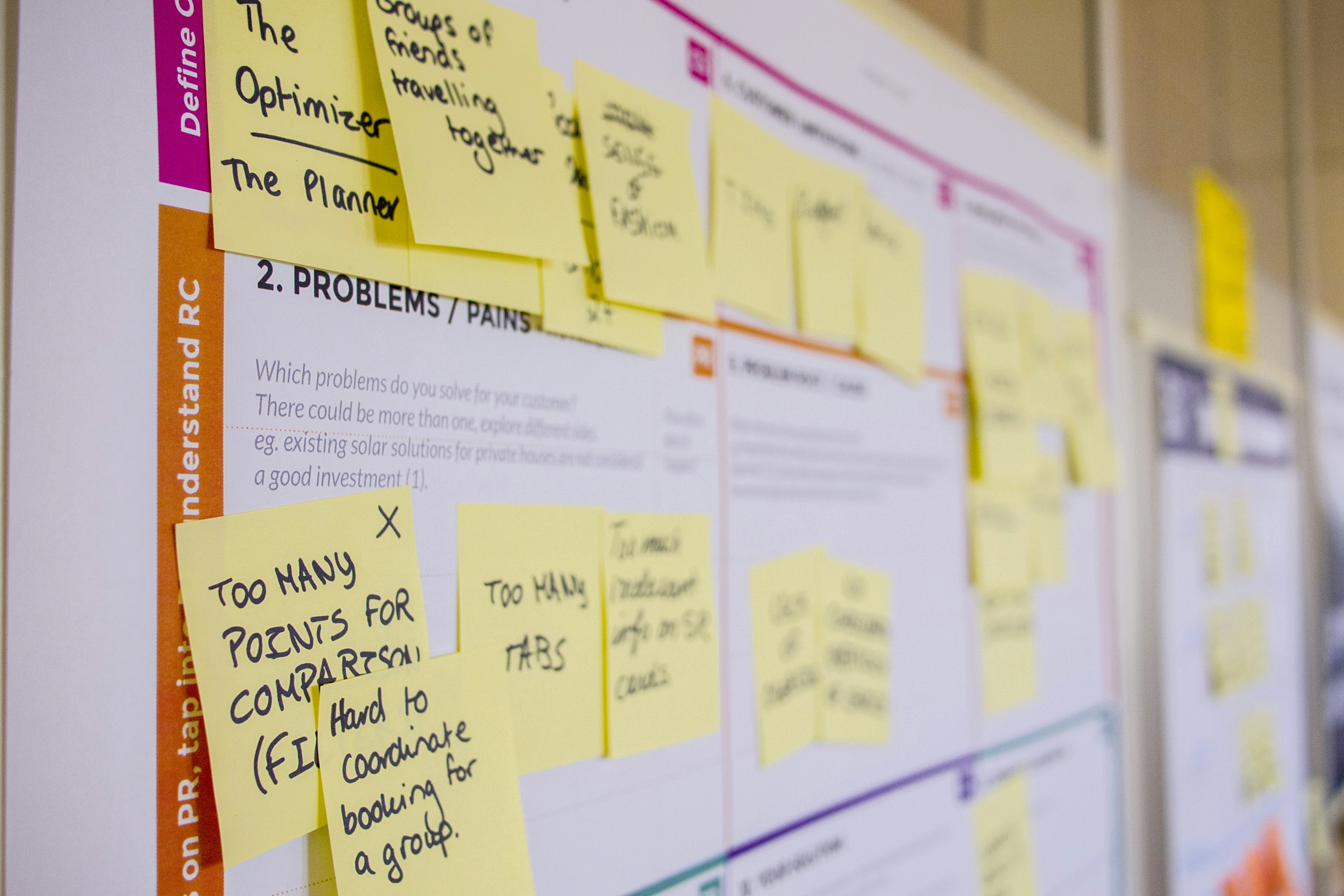
Comprehensive Product Management Education
Develop strategic capabilities through structured programs that combine evidence-based frameworks with practical application and professional guidance.
Return HomeExplore our programs
Our Educational Approach
ProductHub programs integrate three core elements: evidence-based frameworks, practical case application, and cohort-based learning. This methodology develops capabilities that translate directly to professional practice.
Research-Grounded Content
Curriculum drawn from product management literature and validated industry practices
Case-Based Learning
Realistic scenarios and hands-on exercises that develop judgment and decision-making
Practitioner Instruction
Learn from professionals actively working in product roles at technology companies

Product Management Fundamentals
Master the core competencies required for successful product management in technology companies. This program covers product discovery techniques, user story mapping, and prioritization frameworks including RICE and value vs. effort.
View Full DetailsProgram Coverage
Key Topics
- Product discovery and market research methods
- User story mapping and feature definition
- Prioritization frameworks (RICE, Kano, value-effort)
- Roadmap development and strategic planning
- Stakeholder communication and alignment
Learning Outcomes
- Conduct product discovery and validation research
- Create product requirement documents and user stories
- Apply prioritization frameworks to feature decisions
- Develop strategic roadmaps aligned with business goals
- Execute go-to-market strategies and product launches
Ideal for: Professionals transitioning into product roles from engineering, design, or business backgrounds. Those seeking systematic understanding of product management fundamentals.
Agile Product Ownership
Excel as a product owner in agile environments driving value delivery and team success. This course covers backlog management, story writing with acceptance criteria, and sprint planning facilitation.
View Full Details
Program Coverage
Key Topics
- Backlog management and prioritization techniques
- User story writing with acceptance criteria
- Sprint planning and facilitation methods
- Stakeholder engagement and dependency management
- Scaled agile frameworks and multi-team coordination
Learning Outcomes
- Manage and prioritize product backlogs effectively
- Facilitate backlog refinement and sprint ceremonies
- Write clear user stories with testable criteria
- Coordinate dependencies across multiple teams
- Implement scaled agile practices in organizations
Ideal for: Product owners, business analysts, and team members in agile environments. Those managing product backlogs or facilitating agile ceremonies.

Customer Success Management
Build and scale customer success programs that drive retention, expansion, and advocacy. This comprehensive program covers onboarding design, health scoring models, and churn prediction techniques.
View Full DetailsProgram Coverage
Key Topics
- Customer onboarding program design
- Health scoring models and analytics
- Churn prediction and prevention strategies
- Expansion strategies and upsell methodologies
- Customer advocacy and community building
Learning Outcomes
- Design effective customer onboarding experiences
- Implement health scoring and early warning systems
- Conduct quarterly business reviews with customers
- Develop expansion and upsell strategies
- Build customer advocacy and reference programs
Ideal for: Customer success managers, account managers in SaaS companies. Those responsible for customer retention, expansion, and building advocacy programs.
Course Comparison and Selection
Choose the program that aligns with your current role and development objectives. Each course addresses distinct capability areas within product management.
| Feature | Fundamentals | Agile Ownership | Customer Success |
|---|---|---|---|
| Investment | ¥54,000 | ¥47,000 | ¥50,000 |
| Duration | 8 weeks | 6 weeks | 7 weeks |
| Primary Focus | Strategy & Discovery | Execution & Delivery | Retention & Growth |
| Experience Level | Entry to Mid | Mid-Level | Mid to Senior |
| Prerequisites | None | Basic PM knowledge | Customer-facing experience |
| Career Path | Product Manager | Product Owner, Scrum Master | CS Manager, Account Director |
Selection Guidance
Transitioning into Product Roles
Start with Product Management Fundamentals to build comprehensive foundation in product thinking, discovery methods, and strategic frameworks.
Working in Agile Environments
Choose Agile Product Ownership to strengthen backlog management, sprint facilitation, and team coordination capabilities in agile settings.
Program Standards and Methodology
Instructional Quality
All programs delivered by professionals maintaining active product roles. Instructor selection emphasizes both practical experience and teaching capability, ensuring content reflects current industry practices.
- • Minimum 8 years product management experience
- • Active involvement in technology companies
- • Demonstrated teaching and facilitation skills
- • Regular curriculum review and updates
Learning Framework
Structured progression from concept introduction through application and reflection. Each session integrates theoretical frameworks with case-based exercises, supported by feedback and peer discussion.
- • Evidence-based curriculum design
- • Case studies from actual product scenarios
- • Hands-on exercises and deliverable creation
- • Instructor and peer feedback mechanisms
Assessment Approach
Capability development tracked through practical assignments rather than examinations. Participants create artifacts similar to professional deliverables, receiving constructive feedback on application of concepts.
- • Project-based assessment model
- • Professional artifact creation
- • Detailed feedback on work products
- • Portfolio development for career advancement
Cohort Structure
Maximum 15 participants per cohort enables meaningful interaction and personalized guidance. Small group format supports peer learning while maintaining instructor accessibility for individual questions.
- • Limited cohort size for quality interaction
- • Diverse professional backgrounds in groups
- • Collaborative learning emphasis
- • Network building opportunities
Learning Environment and Resources
Programs take place in our Shibuya facility designed to support collaborative learning. The environment includes dedicated workspace for group exercises, presentation equipment for case discussions, and areas for individual reflection between sessions.
Dedicated Facility
Professional learning space in Shibuya optimized for group collaboration and focused work
Course Materials
Comprehensive resources including frameworks, templates, and case studies for ongoing reference
Alumni Network
Access to graduate community for ongoing professional connections and peer support
Course Combinations and Learning Paths
Many professionals benefit from completing multiple programs to develop comprehensive capabilities. We offer guidance on sequencing courses for optimal skill development.
Strategic Leadership Path
Develop both strategic vision and execution discipline. This combination builds comprehensive capability for product management roles requiring both roadmap planning and delivery coordination.
Customer-Centric Path
Balance product strategy with customer relationship management. Ideal for professionals in B2B or SaaS environments where customer success directly influences product direction.
Complete Product Leadership Program
For comprehensive capability development, complete all three courses in sequence. This path develops integrated expertise across strategy, execution, and customer management. Participants completing the full program demonstrate advanced product leadership capabilities to employers.
Frequently Asked Questions
Ready to Develop Your Product Capabilities?
Connect with our team to discuss which program aligns with your professional objectives and how we can support your growth in product management.